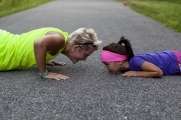Life of a Modern Student: What Types of Education are Available Now?

Any modern student looks forward to learning new things daily. There are different types of education available today. The systems may differ from one country to another. However, there are standard kinds of systems that are universally accepted.

Whether you are looking to study locally or abroad, the learning systems cut across countries. The systems apply to learners of all ages. The various types of education available today include formal, informal, special, and non-formal education. Let's break these down to understand the topic better.
Formal education
This is perhaps one of the most common types of education today. The regular means of schooling, whether private or public, is referred to as formal. Here, the training takes place systematically. You attend a school, college, or university and receive training from teachers.
The educators are licensed and equipped to teach. Various types of schools offer this type of training. However, there may be a few differences. For instance, a school with a Christian affiliation may teach basic religious principles, unlike a public school.
All schools must meet particular standards depending on factors such as test standardization. The formal systems of learning differ between countries. The K-12 program in the United States is the most common. At the age of six years, a child joins kindergarten. They proceed up to grade 12 at the age of 18.
At the age of 18, they can find work after graduating with a diploma or continue with further studies. Formal education also includes undergraduate and postgraduate programs. The institutions of higher learning must adhere to the systems of governance in their respective countries.
At the undergraduate and postgraduate levels, you will learn new skills in preparation for a career. You also learn how to write essays and assignments. One of the best ways to write good essays is by finding online inspiration. With an absolutely free self reflection essay on GradesFixer, it will be easy to write a reflective essay. Good essays result in higher scores and a great career in the long run. This will help you to complete your formal education in preparation for the job market.
Informal education
Informal education is the way you learn outside the school environment. It is possible to participate in both formal learning and informal learning. Many schools support informal education through extracurricular activities.
You can attend classes to acquire formal education. After school, you can acquire informal education by participating in team sports and clubs. Informal type can help you to acquire other life skills. Another way to learn informally is by attending field trips. By taking a trip to a museum, you will learn and appreciate a country’s history and culture.
When a child teaches their children anything non-academic, this is also informal training. For instance, teaching a child a simple task like tying shoelaces. Any training that takes place outside class by someone who is not a trained teacher is considered informal.
Homeschooling is also considered informal. The homeschooling methodology a child receives depends on the state laws in their region. Some states have strict requirements for homeschooling. These include an approved curriculum, test scores, and parents teaching qualifications. Other states don't have requirements or standards for homeschooling.

Special education
Special education (SPED) applies to students with special needs. These are the students with individual differences who cannot fit in the ordinary school setup. Learners with special needs cannot cope with the rigid standards within traditional formal education.
There is usually a misconception that this type of learning applies to those with disabilities. Children with conditions such as ADHD, dyslexia, and physical disabilities qualify for this kind of learning.
To qualify for SPED, a learner must have documented needs and disability SPED to participate in general learning. In many states, special needs children are not separated from other children. Where applicable, they can learn in the same class.
The approaches to special needs programs include:
- Resource rooms
- Low teacher-student ratio
- Tutoring programs
- Special learning aids
- Personalized education
- Specially trained educators
- Self-contained classrooms
Students may benefit from instruction and assessment that is precise and personalized. The special learning programs are also intensive and explicit. The special needs schools are staffed and designed differently from ordinary schools. They provide targeted support to allow learners to meet their educational goals. In addition to learning, the schools also meet the emotional and social needs of the learners.
Non-formal education
Non-formal education has the features of formal and informal education. In this case, there is a kind of structured Learning. However, there is no certification or approved curriculum associated with formal learning. This learning is more structured than informal learning.
Examples of non-formal learning include sports programs and swimming lessons for young kids. Others include adult education courses, seminars, sports programs, and scouts.
Notable benefits of non-formal education include:
- Developing the skills of learners helps to boost self-esteem
- The learner can grow at a personal level and within the society
- The capacity to discover and learn creates a better critical attitude toward the learners' surroundings
- Non-formal learning encourages self-employment and increases job placement opportunities.
- It supports personal development
- It helps learners to adapt to their current needs
Conclusion
Education follows a holistic approach to nurturing an all-around individual. The above types are the most common today. Be part of one or more programs to make a change in your personal life and society. To know more about the education paths, talk to a guidance counselor or teacher. They will be able to guide you on the best path to take.





